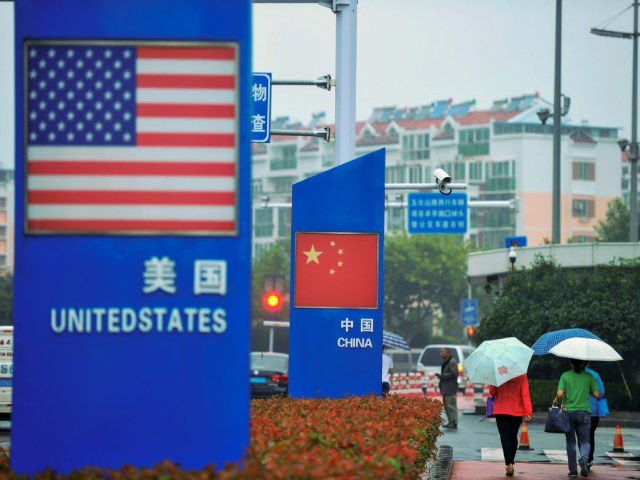Prominent hedge fund manager Kyle Bass urged the Trump administration to avoid giving in to pressure to cut an “easy” deal with China in the trade negotiations set to continue this week in Beijing.
Bass, the founder of Dallas-based Hayman Capital Management, wrote in a Bloomberg op-ed published Monday that the weakness of the Chinese economy meant the U.S. had more leverage to demand deep structural reforms than ever before.
Bass, with co-author Daniel Babich, wrote:
The Trump administration needs to fully understand the leverage it has today — and the increased leverage that it will have after March 1, the end of the 90-day reprieve from the imposition of additional tariffs — is the most the U.S. will ever have. To squander this opportunity would be a catastrophe not only for Trump’s administration but for the West.
Bass is best known for his successful forecast that the U.S. housing boom would end in a disastrous bust. He made billions betting against the U.S. housing market and financial institutions in the financial crisis.
More recently, Bass has become a well-known skeptic of China’s economic health, warning that its high debt levels and loose monetary policy had been used to artificially boost growth and would eventually lead the country into an economic bust. Now he sees evidence that the bust is underway:
The last 12 months have seen key Chinese economic indicators such as industrial production, car sales, retail sales and investment all decline to multi-year lows as the previous round of stimulus abated and China’s debt burden continued to cause a downward economic spiral. The world is finally waking up to the risks to the precarious position of the overleveraged Chinese financial system, which is why we have seen its stock market fall as much as 25 percent over the last year. (Disclosure: Hayman Capital Management, where the author is chief investment officer, has positions in the Chinese currency.)
It would be a mistake, Bass wrote, for the U.S. to accept Chinese offers to reduce its tariffs, buy more soybeans and other commodities, and allow more foreign investment from the U.S. without requiring deeper reforms of its predatory mercantilist policies:
Reducing tariff rates and adjusting foreign ownership rules would be a good thing, but this would not end China’s long-standing policy of bulk economic espionage and theft, which annually costs America’s economy at least $300 billion, according to U.S. government estimates. Multiple U.S. administrations have sought to engage China on these issues for more than two decades, and the commitments made to the U.S. have rarely been fulfilled. America needs a commitment from China’s government that it will put an end to espionage and theft and agree to legal and financial repercussions for their theft. Trump’s administration should continue to push for this and not end talks until there is permanent change in China’s behavior.
Treasury Secretary Steven Mnuchin and U.S. Trade Representative Robert Lighthizer are set to meet with Chinese negotiators in Beijing this week. The trade truce negotiated in December is scheduled to expire in just under three weeks, on March 1.

COMMENTS
Please let us know if you're having issues with commenting.